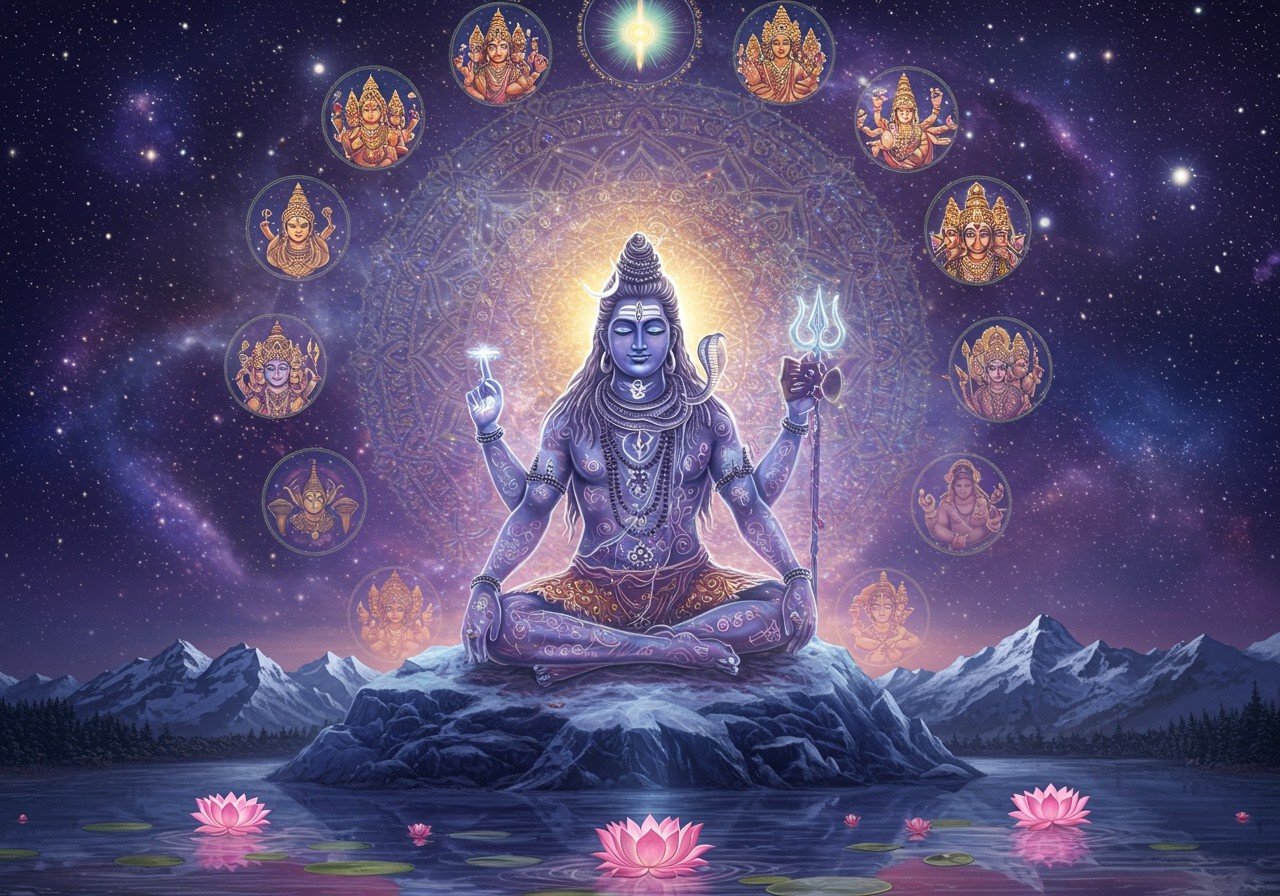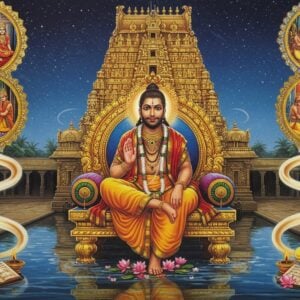Exploring Ishvara: The Supreme Being in Hinduism

In Hindu philosophy, Ishvara is a concept of profound significance. For those seeking a deeper connection with their spiritual heritage, understanding Ishvara is crucial. This article delves into the meaning of Ishvara, exploring its various interpretations and significance across different Hindu traditions. For those interested in learning more about Hindu deities, you can explore our collection of informative articles, such as Krishna: The Supreme God of Compassion and Love, Vishnu: The Preserver, and Lord Indra: The King of Gods in Hinduism.
Understanding Ishvara: Meaning and Significance
Ishvara, often translated as “Lord” or “God,” represents the Supreme Being in Hinduism. It embodies the concepts of a divine ruler, creator, and ultimate reality. This Sanskrit term originates from “Isha,” meaning ruler, and “vara,” meaning boon or blessing. This multifaceted nature of Ishvara allows for both personal and impersonal interpretations. Some see Ishvara as a personal God, while others view it as the manifestation of Brahman, the Absolute Reality. This concept is central to various Hindu scriptures, including the Upanishads and the Bhagavad Gita. These texts explore Ishvara’s role in creation, preservation, and dissolution of the universe.
What is the significance of Ishvara in Hindu beliefs? Ishvara serves as a central focus of devotion and spiritual practice. In the Bhakti tradition, devotees express their love and reverence for Ishvara through prayer, rituals, and meditation. This personal connection with the divine is considered a pathway to spiritual growth and liberation. How is Ishvara perceived across different Hindu traditions? The understanding of Ishvara varies across different schools of thought. In Vaishnavism, Ishvara is often identified with Lord Vishnu, while in Shaivism, it is equated with Lord Shiva. The Shakta tradition venerates the Divine Mother, or Devi, as the supreme Ishvara.
The Sanskrit Roots of Ishvara
The term “Ishvara” holds deep significance within Sanskrit literature. Ancient scriptures and hymns often invoke Ishvara as a powerful symbol of divine presence. The rich etymology of the word, combining “Isha” (ruler) and “vara” (beautiful, boon, blessing), adds layers of meaning to its interpretation. In rituals and ceremonies, the invocation of Ishvara serves as a bridge between the human and divine realms.
Ishvara in Sanskrit texts like the Upanishads and the Bhagavad Gita has been subject to various interpretations by scholars and commentators throughout history. These interpretations have enriched our understanding of this complex concept and its significance in Hindu philosophy. This term’s usage in classical Indian art and literature further demonstrates its cultural impact and enduring relevance.
Diverse Perspectives on Ishvara within Hinduism
Within the diverse tapestry of Hinduism, the understanding of Ishvara takes on various forms. Shaivism, for instance, equates Ishvara with Lord Shiva, often referred to as Maheshvara or Parameshvara, meaning “Supreme Lord.” Devotees of this tradition worship Shiva as the ultimate source of creation, preservation, and destruction.
In Vaishnavism, Ishvara is identified with Lord Vishnu and his various avatars, such as Krishna and Rama. Followers of this tradition believe in the supreme authority and worship of Vishnu as the preserver and protector of the universe.
The Shakta tradition reveres the Divine Mother, or Devi, as the supreme Ishvara. This perspective emphasizes the feminine aspect of the divine, recognizing the power and energy of the Goddess in all its forms. Other interpretations view Ishvara as synonymous with Brahman, the Absolute Reality, while others see Ishvara as a more personal and accessible manifestation of the divine. This diversity of perspectives demonstrates the richness and adaptability of Hindu philosophy.
Connecting with Ishvara through Poojn.in
Poojn.in offers a wide selection of authentic puja items to enhance your connection with Ishvara, including items specifically for Lord Shiva worship, temple setup, and daily rituals: Lord Shiva Murti, camphor, and Laddu Gopal Murti. We provide high-quality, verified products sourced from trusted vendors, ensuring the purity and authenticity of your spiritual practice. With secure packaging and pan-India delivery, you can conveniently access the necessary items for your devotion. Explore our comprehensive collection and discover how Poojn.in can support your spiritual journey.
Embracing Ishvara in Daily Life
Whether you perceive Ishvara as a personal deity or a cosmic principle, the concept provides guidance and understanding within Hindu traditions. Ishvara’s teachings offer timeless wisdom that remains relevant in modern life. Embracing this concept can lead to a deeper connection with your spiritual heritage and promote harmony, purpose, and a sense of belonging.


